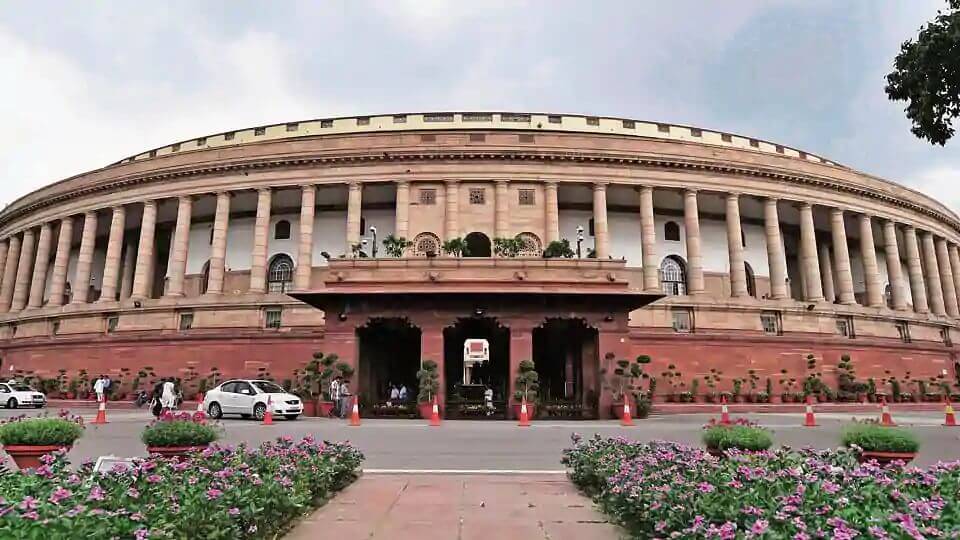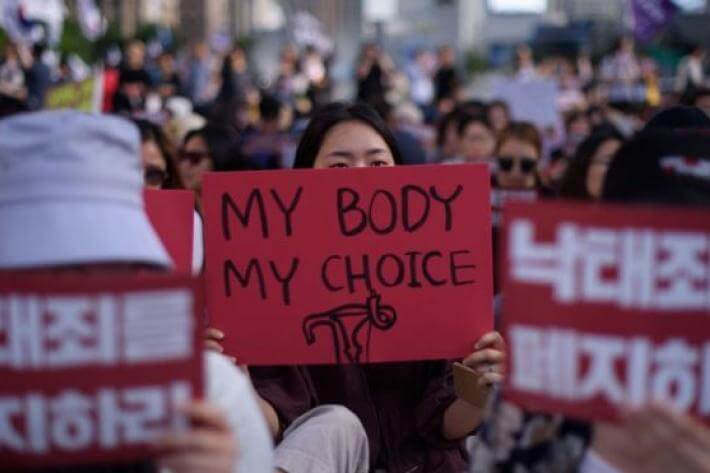This Blog is written by Zeeshan Husain from Indore H.R.K. Law College, Pilibhit. Edited by Ravikiran Shukre.
Terror is the biggest problem in the world. According to terrorist index 2020, India ranked 8th position. India is basically controlled terrorism year to year. The first law against terrorism applies in 1967. This law deals with terrorist activities and controls unlawful activities. The main objects of the law are providing justice and control the criminal, war, and terrorist activities…
This Blog is written by Akshat Srivastava from Amity Law School, Noida. Edited by Ravikiran Shukre.
Domestic violence is a kind of an abuse or violence which is caused in a family. It is committed by one of the people who is having an intermediate relationship against another person in hetero or same-sex connections, between the partners. Domestic violence at home includes viciousness against youngsters, teens, guardians, or the old. It took place in numerous forms like physical, verbal, passionate…
This Blog is written by Illa Mathi Maran from UPES, Dehradun. Edited by Ravikiran Shukre.
The term arbitration is a medium that establishes an effective expeditious dispute resolution framework, unlike the court which takes several years in solving the dispute between the parties because the system which we used has a lengthy process of trials. If we ask who are arbitrators what would they do? The arbitrates are a person who acts as a step for parties who cannot afford more money to fight his/her…
This Blog is written by Jatin Pandey from Dharmashastra National Law University, Jabalpur. Edited by Ravikiran Shukre.
In India, most of the contracts are governed under Indian Contract Act, 1872. Section 11 of the Indian Contract Act talks about who is competent to enter into the contract. According to it, a person who attains the age of majority and is of sound mind and also not disqualified from entering into the contract by any law is competent to enter into the contract. There is certain exception to the above-mentioned…
This Blog is written by Harshit Rai from Amity Law School, Lucknow. Edited by Ravikiran Shukre.
An omnibus legislation during a country as diverse as ours with assorted customs and social mores is neither necessary nor desirable but there’s got to ensure some basic rights across the board. The State continues to – and it must – make endeavours towards enabling the rights enshrined within the Constitution through conversations with the stakeholders. Laws associated with the family – marriage, divorce…
This Blog is written by Tanvi Sanjay Rane from Dr. D.Y. Patil College of Law, Maharashtra. Edited by Ravikiran Shukre.
The most important primary human group is the family. According to Clare, “a family is a system of relationships existing between parents and children”. Eliot and Merrill define family as “the biological social unit composed of husband, wife and children”. These relationships existing in a family are established through the union of marriage. Marriage thus becomes a primary element of a family. It is well-established that this…
Evaluating The Impacts of the Law On Divorce: Has It Increased the Cases of Divorce or Reduced Them?
This Blog is written by Anvaya Singh from Amity Law School, Noida. Edited by Ravikiran Shukre.
India was officially declared to be a secular country in 1976 after the word ‘secular’ was added into the preamble. The main reason for this action was that, since, our country has a vast culture and many different people who belong to different religion and different culture reside in our country for a long time so, it would have been unfair for the people belonging to other religion if our country would have been biased…
This Blog is written by Rithu from Ramaiah college of law, Bangalore. Edited by Ravikiran Shukre.
Disability can be by birth or due to some tragic events or by birth. It is a physical or mental condition that restricts a person’s movement, senses or activities. Facilitating their lives is an important concern of society and the government. Stephan Hawking once said “people with disabilities are vulnerable because of the many barriers we face: attitudinal, physical, and financial. Addressing these barriers is within our…
This Blog is written by Saptaswara Chakraborty from North Eastern Hill University, Meghalaya. Edited by Ravikiran Shukre.
Internet, which started as a network to communicate with computers of every other existing institution, has slowly crept into a dangerous space of privacy and safety. It has been seen as one of the agents that would, slowly, be responsible for a possible war, if, is not regulated. The primary form and manner in which the internet functions can mainly be attributed to how it allows the data to be produced, collected…
This Blog is written by Soham Kamble from School of Law, University of Mumbai. Edited by Ravikiran Shukre.
Industrial Revolution started in India at the beginning of the 18th century. Indians started building and manufacturing at a large scale. India started producing Cotton, Jute, and Silk in a larger amount. And to do so it needed workmen in great numbers. As the work was intense and at that time there were no specific laws for the workmen they were taken undue advantage of and were harassed by the employers. They…
This Blog is written by Aditya Awasthi from Asian Law College, Noida. Edited by Ravikiran Shukre.
India was the first country to launch its family planning program in 1952 to control the population. During the program, the government made available many contraceptive methods to the couples like condoms, IUD, diaphragm, and sterilization. The method of sterilization gained popularity soon after the implementation and during the emergency period, around 8 million sterilizations were reported, where…
This Blog is written by Bhagyashree Dutta from Amity University, Mumbai. Edited by Prakriti Dadsena.
“Venice was the first to have continuously and constantly applied certain rules to patents of invention instead of granting an occasional isolated monopoly. Among these rules were these: the protection always was extended to an inventor, provided that his invention was recognized as useful; that the patent term was limited; that the right was transferrable inter vivos and mortis causa; and that it was subject to a compulsory…
This Blog is written by Anvaya Singh from Amity Law School, Noida. Edited by Prakriti Dadsena.
All around the world, for the purpose of making laws, firstly, the Constitution is considered as the base as, it is considered as the supreme law of the land. The constitution provides the basic framework upon which the laws will be made in the future and if any law, if, considered to be violating the constitution then, that said law will not come into effect. But if the law has already been amended then, it will be considered…
This Blog is written by Anindo Chatterjee from Amity Law School, Noida. Edited by Prakriti Dadsena.
If I go on to ask you what is the importance of organs in your life, you’ll perhaps say what kind of a silly question is that…isn’t it something our life is not complete without ?? but it is not for someone who in their life are dealing with organ failures and diseases causing organ damage. Organs are something that form the basis of our lives without our these properly functional almost self-independent units of the…
This Blog is written by Akshat Srivastava from Amity Law School, Noida. Edited by Prakriti Dadsena.
Use of unregistered medical intervention refers to the use of medical procedures and drugs that have shown promising results in the laboratory and in animal models but have not yet been evaluated for safety and efficacy in human. Before 2014, use of unregistered medical intervention was not under the WHO guidelines; but after the Ebola virus disease outbreak in West Africa and the high case-fatality rate have…
This Blog is written by Ruthika Reddy from St. Francis College for Women, Hyderabad. Edited by Prakriti Dadsena.
Issues such as women’s sexuality, reproductive health, and fertility are rarely discussed in the mainstream due to society’s patriarchal framework. The term “pro-choice” refers to a woman’s right to choose whether to continue her pregnancy or terminate it through medical procedures. Abortion is the term for the intentional medical termination of a pregnancy. A spontaneous abortion, also known as a…
This Blog is written by Prerna Ganti from Symbiosis Law School, Hyderabad. Edited by Oshin Suryawanshi.
India is the second most populated country in the world, with a population of 1.3 billion. While it has a thriving economy and democratic government, it has struggled to keep population growth under control and preserve an equitable income distribution. Even today, more than 20% of our population lives below the poverty line. Due to their inability to earn a living, many in the country often do not have a roof over…
This Blog is written by Ruthika Reddy from St. Francis College for Women, Hyderabad. Edited by Oshin Suryawanshi.
Technology has pervaded every part of our lives, changing the way we work, learn, and live. Technology is the engine that propels the world forward. Industries are striving to keep up with new techniques, which are driven not only by technological improvements but also by their application in a variety of fields. In the past few decades, the legal field has also witnessed numerous technological improvements…
This Blog is written by Promita Ghosh from ICFAI University, Dehradun (Department of law). Edited by Prakriti Dadsena.
A civil suit that has jurisdiction above subject matter is inaugurating by filing a plaint in a suitable court. A Plaint is filled by the plaintiff. Simultaneously, the defendant has to file a written response and put his/ her statement. Hence, retaliation to the content in the plaint. The written statement most of the time is accompanied by set-off and counter-claim. These two are cross-claims filed by the defendant as a…
This Blog is written by Oshin Suryawanshi from Amity Law School, Noida. Edited by Prakriti Dadsena.
Understanding Reserved, Protected, and Village Forests. Reserved forests constitute quite half the entire forest area of India. It’s a particular degree of protection. The respective state governments protect them, unlike wildlife sanctuaries and national parks supervised by the govt of India. It’s considered the foremost valuable sort of forest from the attitude of conservation. Protected forests are taken care of by the govt…
This Blog is written by Shaurya Nagpal from Bennett University, Greater Noida. Edited by Prakriti Dadsena.
The law of sedition in India has a historic significance with it first being introduced in the year 1870 in the British era. Initially, when this law was brought in, the primary objective of the British Government was to suppress the criticism and protests against their policies. Sedition can be best understood as an offence which tends to bring about hatred or contempt accompanied with inciting violence against the…
This Blog is written by Prerna Ganti from Symbiosis Law School, Hyderabad. Edited by Prakriti Dadsena.
In the last few decades, we have seen many cases and read newspaper articles regarding a surge in the crimes committed by juveniles all over the world. Juvenile refers to a person who has not attained the age of majority, i.e., in other words, a juvenile is a young kid or minor who is not considered an adult. It has been recorded that the crimes committed by kids aged between 12-16 increased enormously due to…
This Blog is written by Khushi Gupta from Vivekananda Institute of Professional Studies, New Delhi. Edited by Prakriti Dadsena.
Domestic violence is an evil that rules our society and has severe repercussions on women. It is not hidden from anyone that patriarchy is the root cause of many barbaric acts against women, and this is one of them. A system that preys on the weak and grows on their oppression is prevalent in not just our society but most of the world. Women have time and again fought for fundamental rights and necessities like the…
This Blog is written by Bhagyashree Dutta from Amity University, Mumbai. Edited by Prakriti Dadsena.
An offense is often defined as a violation of the law, which can be either in the form of commission or omission of an act, to have a more precise meaning we can frame it to be a breach of law. On the other hand, petty in simple language means something which is minor in nature. Together, we derive what petty offense entails, to put into words petty offense can be recognized as an offense of a trivial nature…
This Blog is written by Andre Sachdeva from Vivekananda School of Law and Legal Studies, VIPS, New Delhi. Edited by Prakriti Dadsena.
Rape is the most gruesome and inhumane crime to happen to an individual. Sexual offenses such as rape violate the integrity, innocence, and honor of a woman. The destruction of a female’s physical and mental equilibrium by an individual of such a cruel and sadistic mentality, and their tendency to commit rape put these women through a severe emotional crisis and transforming them into a walking corpses. Sexual…
This Blog is written by Akshara Lagisetty from Amity University, Mumbai. Edited by Prakriti Dadsena.
The Constitution of India has provided provisions for every organ of the state i.e. Legislature, Executive, and Judiciary. The judges being part of the judiciary the constitution provides the provisions for appointment as well as the transfer of the judges. The decision of appointing and transferring the judges is taken by both judicial and executive members of the government…
This Blog is written by Aditya Awasthi from Asian Law College, Noida. Edited by Prakriti Dadsena.
Women in different parts of India have faced acid attacks from men for several reasons, most common among them being a repudiation of proposals. Men track down these women, confront them and attack them with acid leaving them severely scarred. Though the physical injury may heal after arduous and numerous operations, the mental injuries remain for life. Acid violence is the premeditated use of acid…
This Blog is written by Anindo Chatterjee from Amity Law School, Noida. Edited by Oshin Suryawanshi.
Rape has been a bane of civilized society for a long now. It has led to billions of scarred individuals not only physically but also mentally. Rape is a crime of the lowest niche such that some of the countries may even punish people with the death penalty just as to deter any future offenders from committing such crimes. But there is a vast grey area when seeing only from the point of Indian legislations regarding the…
This Blog is written by Promita Ghosh from ICFAI University, Dehradun (Department of law). Edited by Oshin Suryawanshi.
The legal process connected in what way assets are split upon divorce is a mindful and complicated activity. It became a vigorously disputed matter as the court has a broad disposition in determining who receives what. Equitable distribution thus fair division of property lay the hand of a lot of factors while the distribution of property which incorporate the requirement of the couple, how long-lasting they were…
This Blog is written by Bhagyashree Dutta from Amity University, Mumbai. Edited by Oshin Suryawanshi.
Law in itself has been an integral part of a human being’s life, back from the pre-civilization to the contemporary life where we are supposed to be civilized, there is no denial in the fact that as the social setting grew, it became more complex and the law widened its hemisphere accordingly. Earlier, individuals did not find it safe to communicate in any way with someone outside their community or kin, even if they did…
This Blog is written by Khushi Gupta from Vivekananda Institute of Professional Studies, New Delhi. Edited by Oshin Suryawanshi.
India is home to nearly 19 percent of the world’s children, making it the world’s most populous country in terms of children. In this ever-changing culture, it outlines the country’s responsibility in creating a safe refuge for children. As a result, the country grants its children a slew of basic and legal rights, while also emphasizing the importance of their protection, care, and development in its overall plans…
This Blog is written by Muskan Sharma from Institute of Law, Nirma University. Edited by Prakriti Dadsena.
The case is about a dispute between two parties incorporated in India under the Companies Act, 1956. The appellant is PASL WIND SOLUTIONS PVT LIMITED, a registered office situated in Ahmedabad. The respondent is GE POWER CONVERSION INDIA PRIVATE LIMITED, registered office in Chennai, Tamil Nadu…
This Blog is written by Shaurya Nagpal from Bennett University, Greater Noida. Edited by Oshin Suryawanshi.
The term live-in relationship has not been covered under law, but a live-in relationship can be best described as a relationship wherein both the partners live in the same household with their individual freedom but most importantly are not married to each other. In such an arrangement, the two people plan to live together on a permanent basis in an emotionally and sexually intimate relationship. When critically…
This Blog is written by Anhadinder Singh from Amity Law School, Noida. Edited by Oshin Suryawanshi.
Global participation in law authorization has as-summed an undeniably significant job during the last decade. The justification for this is basic. Similarly, as advancements in communications, transportation, and account have expanded international trade and the travel industry, they have likewise expanded unlawful business and criminal misuse of public limits. The occurrence of global wrongdoing, on an…
This Blog is written by Soumya Bhardwaj from Bennett University, Greater Noida. Edited by Ravikiran Shukre.
The most crucial step in making your work distinct and different from others is to copyright it. When you create anything on your own, it becomes your signature work because others will identify you. The artist or painter may put in a particular amount of effort, talent, time, and other criteria in order to create an artwork or sketch. As a result, an artist’s or painter’s creations are his most precious assets. As we all know, an…
This Blog is written by Pranjal Rai from Amity Law School, Lucknow. Edited by Ravikiran Shukre.
“Hate the crime and not the criminal”, You might have heard this a zillion times. This means that we want to eliminate crime and for this, the elimination of criminals isn’t required. The criminal law in India is more into reforming offenders instead of punishing them. It is true that punishment gives a way of satisfaction to the society also on the victim, but this doesn’t reform the criminals. Especially within the cases of…
This Blog is written by Soham Kamble from School of Law, University of Mumbai. Edited by Ravikiran Shukre.
Of the many influences on how we view men and women, media is the most convincing and one of the most powerful tools. Women are displayed more in domestic roles in the media or seen as a supporting characters compared to their male partner, who is featured in a more powerful role. The primary way in which media twist reality is by misinterpreting…
This Blog is written by Akshat Srivastava from Amity Law School, Noida. Edited by Ravikiran Shukre.
In the present scenario economic growth of any country is not possible without the digitization process. The present government of our country has also given great thrust to digitization in its core policy and propelling very fast towards digitalization by introducing all government dealings online. With the help of digitization accurate information can be very…
This Blog is written by Soujanya Boxy from National Law University, Odisha. Edited by Ravikiran Shukre.
Laws relating to sexual orientation and gender identity have changed a lot. Several laws that prohibited same-sex intimacy and the expression of various gender identities have been repealed by different jurisdictions in the world. Further, a rising number of jurisdictions are amending their laws for the protection of lesbian, gay, bisexual, and transgender (LGBT) people…
This Blog is written by Illa Mathi Maran from UPES, Dehradun. Edited by Ravikiran Shukre.
The feminist criticism of criminal law and the criminal justice administration that has the proliferated and over the past decade and now touched score of doctrinal and theoretical issue. The critique and the association and the proposal and the for reform are usually acknowledged to be controversial, then the proposal which was made usually acknowledged to…








































